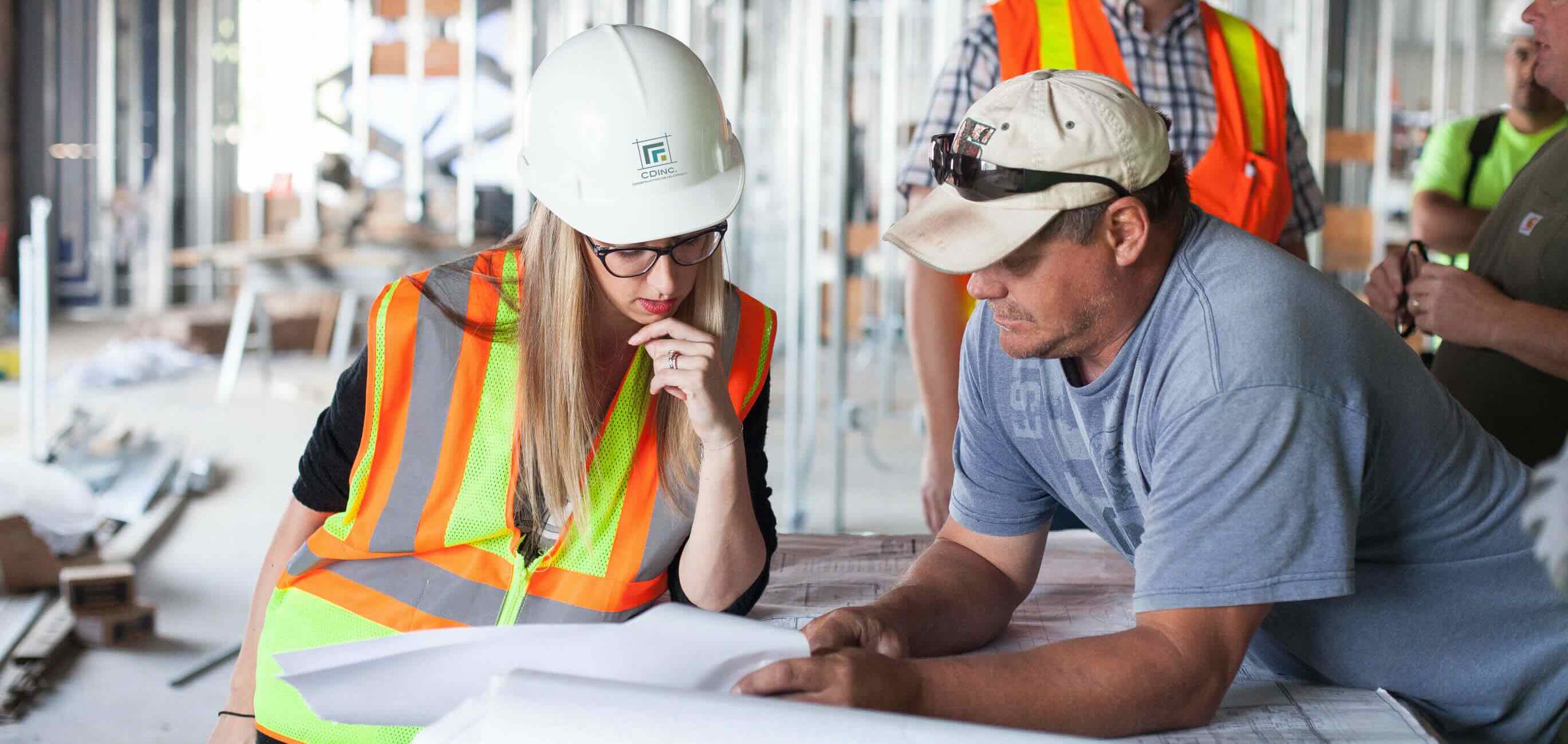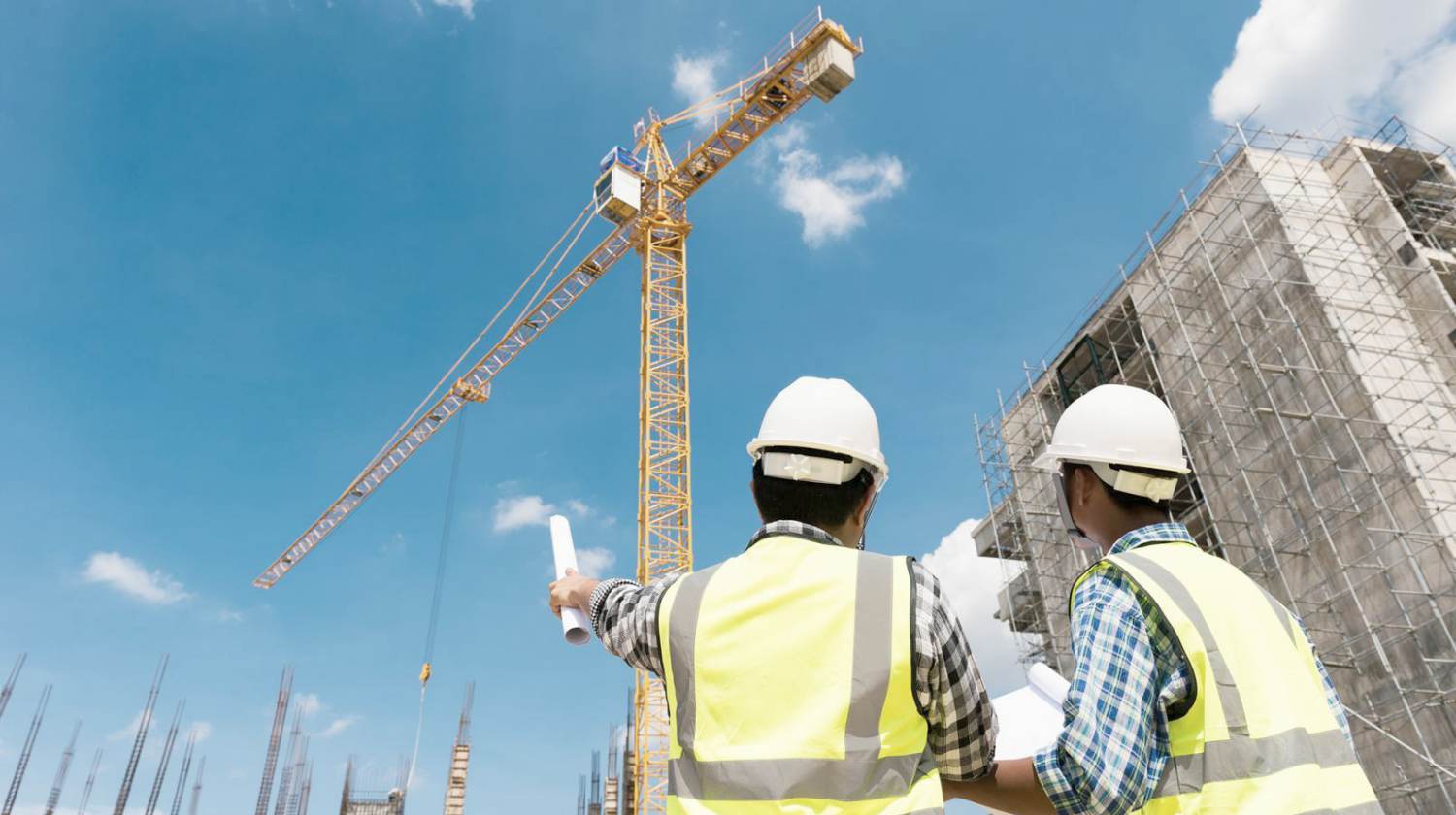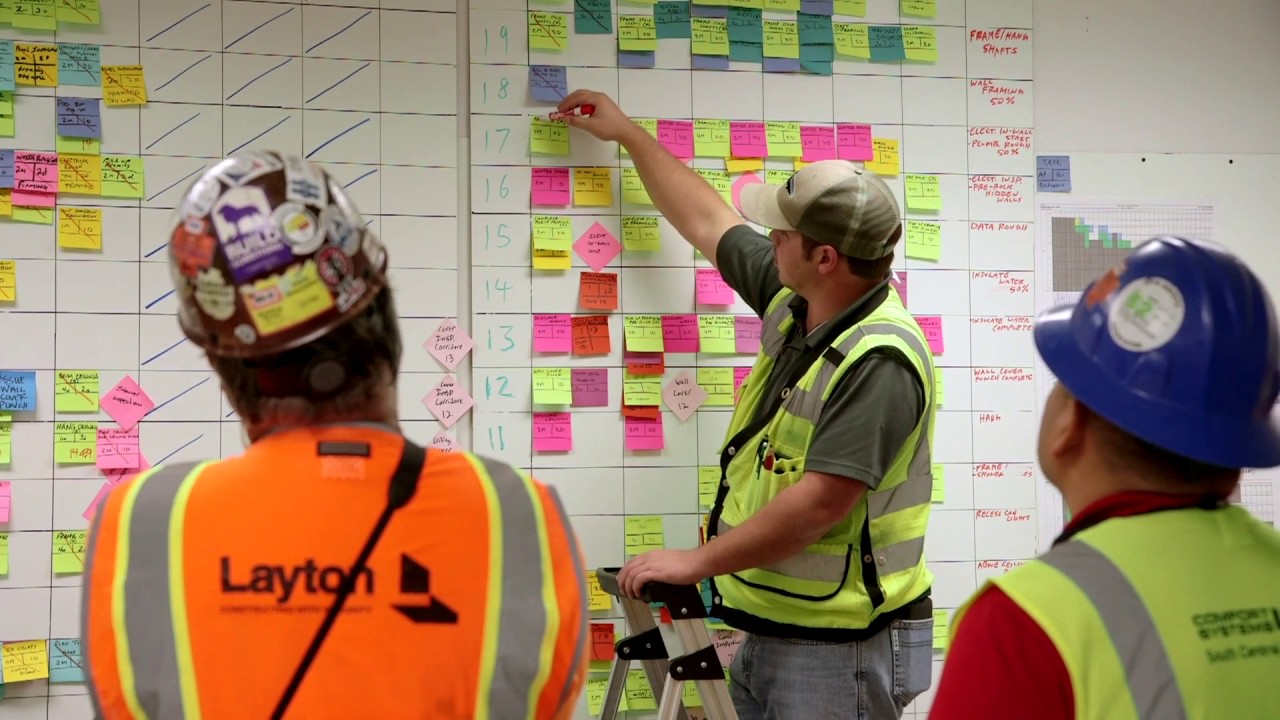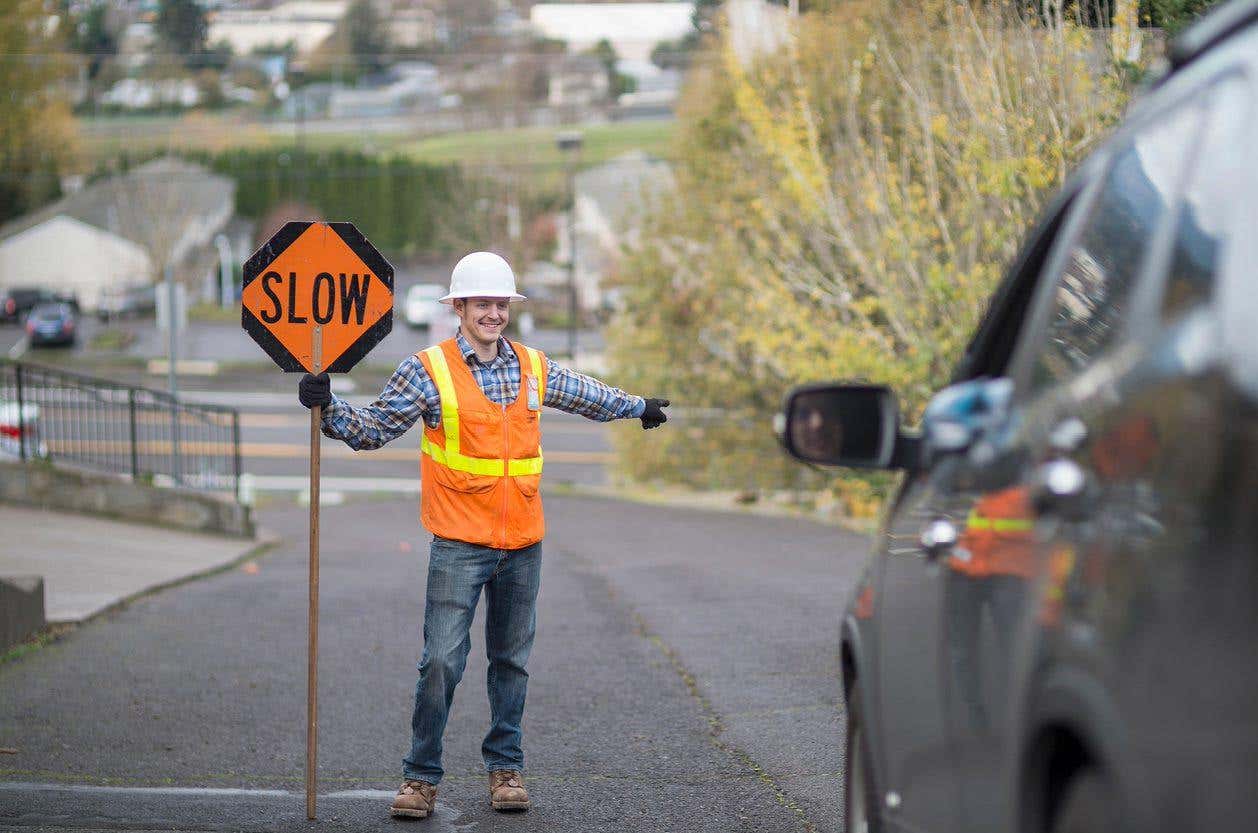Home>diy>Building & Construction>What Does A Field Engineer Do In Construction


Building & Construction
What Does A Field Engineer Do In Construction
Modified: March 6, 2024
Discover the role and responsibilities of a field engineer in the building construction industry. Gain insights into their crucial contributions to project management and site supervision.
(Many of the links in this article redirect to a specific reviewed product. Your purchase of these products through affiliate links helps to generate commission for Storables.com, at no extra cost. Learn more)
Introduction
Construction projects are complex endeavors that require the expertise of professionals in various roles. One such crucial role is that of a Field Engineer. These individuals play a vital role in ensuring that construction projects run smoothly from start to finish.
A Field Engineer in the construction industry is responsible for overseeing and coordinating various aspects of the construction process. They bridge the gap between the office and the field, ensuring that plans are executed correctly and that projects are completed according to specifications.
In this article, we will explore the responsibilities, duties, and tasks of a Field Engineer in construction. From understanding construction plans to problem-solving on-site, a Field Engineer’s role encompasses a wide range of activities that are essential for successful project completion.
So, let’s dive into the world of a Field Engineer and discover the integral role they play in the construction industry.
Key Takeaways:
- Field Engineers are essential for successful construction projects. They coordinate tasks, manage resources, and ensure safety compliance, contributing to efficient and high-quality project completion.
- Field Engineers solve problems, enforce safety, and document progress. Their diverse skills and responsibilities are crucial for seamless construction project execution.
Read more: What Does A Construction Engineer Do?
Responsibilities of a Field Engineer
A Field Engineer in construction holds significant responsibilities that contribute to the overall success of a project. They are responsible for overseeing and coordinating various activities on the construction site, ensuring that all tasks are completed efficiently and according to set standards. Here are some key responsibilities of a Field Engineer:
- Project Coordination: Field Engineers play a crucial role in coordinating activities between different stakeholders, including project managers, subcontractors, and field workers. They ensure seamless communication and collaboration to keep the project on track.
- Construction Documentation: Field Engineers are responsible for maintaining accurate and detailed construction documentation, including daily progress reports, quality control reports, and any changes or deviations from the original plans.
- Quality Assurance: Ensuring that construction is carried out to the highest quality standards is a core responsibility of a Field Engineer. They monitor and inspect the work being done on-site, identifying any potential quality issues and implementing corrective measures.
- Schedule Management: Field Engineers play a key role in schedule management. They monitor the progress of construction activities, identify potential delays, and work towards finding solutions to keep the project on schedule.
- Cost Control: Field Engineers work closely with project managers to monitor and control construction costs. They track expenses, identify cost-saving measures, and ensure that the project stays within the allocated budget.
- Safety Compliance: Safety is a top priority on any construction site, and Field Engineers are responsible for enforcing and maintaining a safe working environment. They ensure that all workers adhere to safety protocols and regulations.
- Client Communication: Field Engineers act as a point of contact between the construction team and the client. They provide regular updates on project progress, address any concerns or queries, and ensure client satisfaction.
These are just a few of the key responsibilities of a Field Engineer in construction. Their role is vital in ensuring that projects are completed on time, within budget, and to the highest quality standards.
Job Duties and Tasks
A Field Engineer in construction performs a wide range of duties and tasks to ensure the smooth execution of construction projects. These tasks can vary depending on the specific project and the stage of construction. Here are some common job duties and tasks of a Field Engineer:
- Site Assessment: Before construction begins, a Field Engineer conducts a thorough site assessment to identify any potential challenges or hazards. They assess the terrain, soil conditions, and utility layouts to determine the most effective construction approach.
- Construction Planning: Field Engineers participate in the construction planning and scheduling process. They work closely with project managers and engineers to develop a detailed construction plan, including task sequencing and resource allocation.
- Materials and Equipment Procurement: Field Engineers are responsible for procuring the necessary materials and equipment for construction. They collaborate with suppliers, compare prices, and ensure timely delivery to the construction site.
- Work Supervision: Field Engineers supervise and oversee the work performed by subcontractors and field workers. They ensure that work is carried out according to specifications, quality standards, and safety protocols.
- Technical Support: Field Engineers provide technical support on-site, addressing any construction-related issues or challenges that may arise. They propose solutions, coordinate with engineers if needed, and ensure smooth project progress.
- Progress Monitoring: Field Engineers closely monitor the progress of construction activities, tracking milestones and verifying that work is completed on time. They identify any deviations from the schedule and take corrective measures to mitigate delays.
- Document Management: Field Engineers are responsible for managing and organizing construction documents, including plans, permits, and specifications. They ensure that the necessary documents are readily available for reference and regulatory compliance.
- Quality Control: Field Engineers conduct regular inspections to ensure that work meets quality standards. They inspect materials, workmanship, and adherence to project specifications, making necessary adjustments or corrections as required.
- Conflict Resolution: In the event of conflicts or disputes on-site, Field Engineers act as mediators, working to resolve issues between different stakeholders. They foster cooperation and effective communication to maintain a harmonious work environment.
- Health and Safety Compliance: Field Engineers enforce and promote a safe working environment on the construction site. They ensure that workers follow safety protocols, conduct regular safety meetings, and address any safety concerns immediately.
These job duties and tasks highlight the diverse and multifaceted nature of a Field Engineer’s role in construction. Their expertise and attention to detail are crucial for successful project execution, ultimately contributing to the overall success of construction projects.
Understanding Construction Plans and Specifications
An essential skill for a Field Engineer in construction is the ability to understand and interpret construction plans and specifications. These documents provide the blueprint for the entire project and serve as a guide for construction activities. Here’s a closer look at the importance of understanding construction plans and specifications:
Interpreting Architectural and Engineering Drawings:
Construction plans typically include architectural and engineering drawings that illustrate the project design and layout. Field Engineers must have a strong understanding of these drawings to ensure that construction adheres to the desired specifications. They analyze plans, identify key elements, and translate them into actionable tasks for the construction team.
Identifying Materials, Dimensions, and Specifications:
Construction plans contain detailed information about the materials to be used, including their dimensions, quantities, and specifications. Field Engineers are responsible for accurately interpreting this information to procure the right materials and ensure that they meet the project requirements. They also consider factors such as sustainability, durability, and cost-effectiveness when selecting materials.
Understanding Construction Techniques and Processes:
Construction plans provide insights into the construction techniques and processes to be employed during the project. Field Engineers must understand these techniques to effectively coordinate and supervise the work on-site. They ensure that the proper sequencing, methods, and best practices are followed to achieve the desired outcomes.
Coordinating with Architects, Engineers, and Design Professionals:
Field Engineers often collaborate closely with architects, engineers, and other design professionals to clarify any ambiguities or address discrepancies in the construction plans. They engage in constructive dialogue to ensure that everyone is aligned on the project requirements and that any necessary revisions or modifications are made accordingly.
Preparing Work Breakdown Structure and Schedule:
With a thorough understanding of the construction plans and specifications, Field Engineers can develop a comprehensive work breakdown structure and schedule. They break down the construction tasks, assign resources, and determine the logical sequence of activities. This detailed plan serves as a roadmap for the construction team, ensuring that work progresses smoothly and efficiently.
Overall, the ability to understand and interpret construction plans and specifications is fundamental for a Field Engineer. It allows them to effectively communicate the project requirements to the construction team, ensure compliance with design intent, and ultimately deliver a successful construction project.
Site Preparation and Inspections
Site preparation is a critical phase in the construction process, and Field Engineers play a vital role in ensuring that the construction site is properly prepared and ready for work. They oversee various activities and conduct inspections to ensure compliance with safety regulations and project requirements. Let’s explore the importance of site preparation and inspections:
Site Clearing and Demolition:
Before construction can commence, Field Engineers oversee the process of clearing the site and, if necessary, demolishing existing structures. They ensure that all debris, trees, and vegetation are removed safely and efficiently, preparing a clean canvas for the upcoming construction work.
Utility Assessment and Coordination:
Field Engineers work closely with utility companies to assess the existing underground utilities such as water, electricity, gas, and telecommunications. They coordinate with utility providers to identify any potential conflicts or necessary relocations to avoid disruptions during construction.
Permitting and Regulatory Compliance:
Field Engineers are responsible for obtaining the necessary permits and ensuring compliance with local building codes and regulations. They work with regulatory authorities and conduct regular inspections to ensure that construction activities align with the approved plans and meet safety standards.
Site Layout and Marking:
Field Engineers accurately lay out the site based on the construction plans, marking the locations for various elements, such as foundation footings, structural components, and utilities. They use surveying equipment and techniques to ensure precise positioning, allowing for the proper alignment and execution of construction activities.
Soil Testing and Geotechnical Investigations:
Field Engineers oversee soil testing and geotechnical investigations to assess the soil’s stability and load-bearing capacity. This information is crucial for determining the appropriate foundation design and construction methods. They analyze the test results and collaborate with engineers to ensure the foundation meets safety requirements.
Continuous Inspections and Quality Assurance:
Throughout the construction process, Field Engineers conduct regular inspections to ensure that the work being carried out is in line with the project specifications and meets quality standards. They inspect materials, workmanship, structural elements, and safety protocols, making necessary corrections or adjustments as needed.
Environmental Considerations:
Field Engineers are mindful of environmental factors during site preparation. They implement erosion control measures, manage stormwater runoff, and address any potential environmental impacts associated with construction activities. They ensure compliance with environmental regulations to protect the surrounding ecosystem.
Through diligent site preparation and thorough inspections, Field Engineers lay the foundation for a successful construction project. Their attention to detail and adherence to safety and quality standards contribute to the overall success and longevity of the structure.
Read more: What Do Civil Engineers Do In Construction
Coordination with Project Managers and Workers
Effective coordination between project managers and workers is essential for the smooth execution of construction projects, and Field Engineers play a crucial role in facilitating this coordination. They act as a bridge between these two key stakeholders, ensuring clear communication, seamless workflow, and successful project outcomes. Here’s a closer look at the importance of coordination with project managers and workers:
Project Planning and Scheduling:
Field Engineers collaborate closely with project managers in the planning and scheduling of construction activities. They participate in meetings to understand project timelines, milestones, and resource allocation. Field Engineers provide input based on their expertise and on-site assessment to ensure realistic project plans that account for potential challenges and opportunities.
Task Assignment and Delegation:
Field Engineers work with project managers to assign tasks and delegate responsibilities to the construction team. They consider the skills and expertise of individual workers, ensuring that the right person is assigned to the right task. This strategic task assignment optimizes workflow and productivity on the construction site.
Supervision and Workflow Management:
Field Engineers supervise and manage the day-to-day operations on the construction site, ensuring that work progresses smoothly and according to schedule. They provide guidance to workers, addressing any questions or concerns, and solving issues that may arise. Field Engineers also ensure that safety protocols are followed and that work is conducted efficiently and effectively.
Communication and Information Sharing:
Field Engineers act as a conduit for communication between project managers and workers. They relay information about project plans, changes, and updates to the workers, ensuring that everyone is aware of their roles and responsibilities. Field Engineers also provide feedback and status updates to project managers, keeping them informed about the progress and any issues on the construction site.
Problem-solving and Conflict Resolution:
In the dynamic environment of a construction site, problems and conflicts may arise. Field Engineers are skilled in problem-solving and conflict resolution, collaborating with project managers and workers to find practical and effective solutions. They facilitate open communication, listen to different perspectives, and work towards maintaining a harmonious work environment.
Adherence to Budget and Resource Management:
Field Engineers work closely with project managers to ensure that the construction project stays within the allocated budget. They monitor and control expenses, track resource utilization, and identify potential cost-saving measures. Field Engineers collaborate with project managers to make informed decisions regarding resource allocation and procurement.
Continuous Improvement and Feedback:
Field Engineers provide valuable feedback to project managers based on their on-site experience. They identify areas where processes or techniques can be improved and share suggestions for enhancing project efficiency and quality. Field Engineers play an active role in fostering a culture of continuous improvement on the construction site.
By fostering effective coordination between project managers and workers, Field Engineers contribute to the overall success of construction projects. Their role as facilitators, communicators, and problem solvers ensures that construction activities are executed seamlessly and that project objectives are achieved.
A field engineer in construction is responsible for overseeing on-site operations, ensuring quality and safety, and resolving technical issues. They work closely with project managers and construction teams to ensure projects are completed efficiently and according to specifications.
Equipment and Material Management
Effective management of equipment and materials is crucial for the smooth operation of construction projects, and Field Engineers play a vital role in overseeing these aspects. They ensure that the right equipment and materials are available when needed, manage inventory, and optimize resource utilization. Let’s explore the importance of equipment and material management:
Equipment Procurement and Maintenance:
Field Engineers are responsible for procuring construction equipment required for the project. They assess project needs, work with suppliers, and ensure timely delivery of equipment to the construction site. Field Engineers also collaborate with maintenance teams to schedule regular maintenance and repairs to keep the equipment in proper working condition.
Inventory Management:
Field Engineers maintain a comprehensive inventory of materials and equipment on the construction site. They track quantities, monitor usage, and reorder supplies when needed to avoid delays or disruptions. Effective inventory management ensures that materials and equipment are readily available, reducing downtime and optimizing project progress.
Resource Allocation:
Field Engineers play a key role in allocating equipment and materials to specific tasks and workers. They assess project requirements, coordinate with project managers and subcontractors, and ensure that the necessary resources are available at the right time and in the right quantity. Effective resource allocation maximizes productivity and minimizes waste.
Optimizing Equipment Usage:
Field Engineers monitor and control equipment usage on the construction site to optimize efficiency. They ensure that equipment is utilized to its full potential, avoiding idle time or underutilization. Field Engineers also prioritize equipment allocation based on project needs, preventing bottlenecks or delays caused by equipment availability.
Material Procurement and Logistics:
Field Engineers are responsible for procuring construction materials required for the project. They collaborate with suppliers, compare prices, and ensure timely delivery to the construction site. Field Engineers also manage material logistics, coordinating with transportation providers and overseeing the movement and storage of materials on-site.
Waste Management and Recycling:
Field Engineers are mindful of waste management on the construction site. They establish procedures for waste disposal and recycling, ensuring compliance with environmental regulations. Field Engineers promote sustainable practices, minimizing waste generation, and identifying opportunities for material recycling or reuse.
Cost Control and Budgeting:
Field Engineers work closely with project managers to manage equipment and material costs within the allocated budget. They track expenses, identify cost-saving opportunities, and optimize resource utilization to minimize unnecessary spending. Field Engineers provide input for budget revisions or adjustments, ensuring that equipment and material management aligns with the project’s financial objectives.
Through effective equipment and material management, Field Engineers contribute to the overall efficiency and success of construction projects. Their attention to detail, proactive planning, and strategic resource allocation ensure that construction activities progress smoothly and that project objectives are achieved.
Quality Control and Safety Assurance
Quality control and safety assurance are paramount in the construction industry, and Field Engineers play a critical role in ensuring that projects meet the highest standards of quality and safety. They implement quality control measures, conduct inspections, and enforce safety protocols to create a secure and reliable construction environment. Here’s a closer look at the importance of quality control and safety assurance:
Quality Control:
Field Engineers are responsible for implementing and enforcing quality control measures on the construction site. They monitor construction activities to ensure compliance with specifications, codes, and industry standards. Field Engineers conduct regular inspections, review workmanship, and test materials to verify that they meet quality requirements.
Compliance with Design and Specifications:
Field Engineers ensure that construction activities align with the design intent and specifications outlined in the project plans. They carefully review drawings and specifications to understand the project requirements and communicate them to the construction team. Field Engineers monitor the progress of work to ensure that it meets the design parameters and maintains consistency with the approved plans.
Quality Assurance Processes:
Field Engineers implement quality assurance processes to proactively identify and address any potential issues or defects. They create and maintain quality control plans, conduct regular audits, and collaborate with subcontractors and workers to ensure that work is completed to the highest standards. Field Engineers continuously monitor and evaluate the construction process to maintain the desired level of quality throughout the project.
Safety Protocols and Procedures:
Field Engineers enforce safety protocols and procedures to create a secure work environment on the construction site. They conduct regular safety inspections, promote awareness of potential hazards, and ensure that workers adhere to safety regulations. Field Engineers collaborate with safety officers, provide safety training, and lead safety meetings to reinforce a culture of safety and mitigate potential risks.
Hazard Identification and Mitigation:
Field Engineers are vigilant in identifying potential hazards and taking proactive measures to mitigate them. They conduct thorough site assessments to identify any safety risks and implement appropriate control measures. Field Engineers collaborate with project managers and workers to address safety concerns, implement safety signage, and provide personal protective equipment to ensure a safe working environment.
Continuous Improvement:
Field Engineers actively seek opportunities for continuous improvement in quality control and safety assurance. They analyze inspection results, identify areas for improvement, and implement corrective actions to enhance quality and safety performance. Field Engineers also share best practices and lessons learned with project managers and workers to foster a culture of continuous learning and improvement.
By prioritizing quality control and safety assurance, Field Engineers contribute to the successful completion of construction projects. Their expertise in implementing quality control measures and enforcing safety protocols ensures that projects are delivered to the highest quality standards while safeguarding the well-being of workers and the surrounding environment.
Problem-Solving and Troubleshooting
Problem-solving and troubleshooting are key skills that Field Engineers bring to the construction site. They are skilled in identifying and resolving various issues that may arise during the construction process. Whether it’s technical challenges, logistical hurdles, or unexpected events, Field Engineers are adept at finding solutions to keep the project on track. Here’s why problem-solving and troubleshooting are essential for a Field Engineer:
Identifying Issues and Challenges:
Field Engineers have a keen eye for identifying potential problems and challenges that may impact the construction process. They conduct thorough assessments of the site, review plans, and collaborate with project managers to anticipate and address any issues that may arise. Field Engineers proactively identify challenges before they escalate, allowing for timely resolution.
Analyzing the Root Cause:
Field Engineers possess strong analytical skills to delve into the root cause of a problem. They investigate the underlying factors, assess various contributing factors, and determine the primary cause. By understanding the root cause, Field Engineers can develop and implement effective solutions that address the core issue rather than merely treating the symptoms.
Creative and Innovative Solutions:
Field Engineers approach problem-solving with creativity and innovation. They think outside the box, considering different perspectives and exploring alternative solutions. Field Engineers draw on their deep knowledge of construction principles, techniques, and industry best practices to devise unique and practical solutions that overcome challenges and optimize project performance.
Collaboration and Communication:
Field Engineers collaborate closely with project managers, workers, and subcontractors to solve problems and troubleshoot issues. They foster open dialogue, listen to input from different stakeholders, and encourage collaboration to find the best solution. Field Engineers effectively communicate potential solutions and coordinate efforts to implement them, ensuring that everyone is aligned and working towards common objectives.
Decision-Making and Risk Assessment:
Field Engineers are skilled decision-makers, able to weigh different options and make informed choices in complex situations. They consider the risks and benefits associated with each decision, taking into account factors such as schedule, cost, quality, and safety. Field Engineers apply a systematic approach to decision-making to mitigate risks and ensure the best outcome for the project.
Adapting to Changing Circumstances:
Construction projects are dynamic environments, and unforeseen circumstances are inevitable. Field Engineers excel at adapting to changes and finding solutions to keep the project on track. They are quick thinkers, flexible in their approach, and adept at adjusting plans and strategies when faced with unexpected obstacles or changes in project requirements.
Learning from Experience:
Field Engineers continuously learn from their experiences and previous projects, applying lessons learned to future problem-solving. They document and analyze past challenges and their respective solutions, creating a repository of knowledge that informs their problem-solving approach. Field Engineers leverage their experience to anticipate potential issues and apply effective solutions.
Problem-solving and troubleshooting are integral components of a Field Engineer’s role in construction. Their ability to identify issues, think critically, collaborate with stakeholders, and implement innovative solutions ensures that construction projects overcome obstacles and achieve successful outcomes.
Documentation and Reporting
Documentation and reporting are vital aspects of a Field Engineer’s role in construction. They are responsible for maintaining accurate records, documenting project progress, and providing valuable information to project managers, stakeholders, and regulatory authorities. Here’s why documentation and reporting are crucial for a Field Engineer:
Record-Keeping and Documentation:
Field Engineers keep detailed records of construction activities, including daily progress reports, material logs, equipment usage, and labor hours. They ensure that all relevant information is documented accurately and promptly. These records serve as a historical reference, providing valuable insights about the project’s timeline, resource allocation, and work completed.
Project Progress Updates:
Field Engineers provide regular project progress updates to project managers, keeping them informed of the construction site’s status. They communicate key milestones achieved, challenges encountered, and any changes or deviations from the original plans. These updates enable project managers to make informed decisions and keep stakeholders abreast of the project’s progress.
Safety and Quality Compliance Reports:
Field Engineers generate safety and quality compliance reports, documenting adherence to safety protocols, regulatory requirements, and quality standards. These reports highlight any concerns or issues identified during inspections, as well as the corresponding corrective actions taken. Field Engineers also record any incidents or accidents, ensuring that proper documentation and reporting processes are followed.
Change Orders and Variations:
Field Engineers document any changes or variations from the original construction plans. They generate change orders that outline the revised scope of work, cost implications, and approvals required. Field Engineers collaborate with project managers to ensure that the change orders are properly documented and communicated to all relevant parties, minimizing misunderstandings or disputes.
Material and Equipment Documentation:
Field Engineers maintain comprehensive documentation of materials and equipment used on the construction site. They record the quantity, specifications, and source of materials, as well as details about equipment procurement, maintenance, and usage. Accurate documentation allows for effective inventory management, cost control, and future reference if issues arise or warranties need to be claimed.
Regulatory Compliance and Permits:
Field Engineers ensure compliance with regulatory requirements and obtain necessary permits for the construction project. They maintain documentation of permits obtained, inspection reports, and any correspondence with regulatory authorities. Field Engineers work closely with project managers and regulatory agencies to ensure that all documentation and reporting processes are appropriately followed.
Lessons Learned and Best Practices:
Field Engineers document and share lessons learned from each construction project. They compile reports identifying successful practices, challenges encountered, and recommendations for improvement. These reports contribute to a continuous learning culture, allowing future projects to benefit from past experiences and insights.
Effective documentation and reporting by Field Engineers enhance transparency, accountability, and communication in construction projects. Through accurate and timely documentation, they provide valuable information that supports decision-making, facilitates project control, and ensures compliance with regulatory requirements.
Conclusion
Field Engineers play a vital role in the construction industry and are essential for the successful execution of projects. Their diverse responsibilities, ranging from understanding construction plans to problem-solving and troubleshooting, contribute to the overall efficiency, quality, and safety of construction projects.
From coordinating with project managers and workers to managing equipment and materials, Field Engineers bridge the gap between the office and the field, ensuring seamless communication, effective resource allocation, and proper project coordination.
Field Engineers are not only knowledgeable about construction techniques and processes but also possess the skills necessary for problem-solving and decision-making. Their ability to analyze issues, devise creative solutions, and adapt to changing circumstances are vital for overcoming challenges and keeping construction projects on track.
In addition to their technical expertise, Field Engineers are adept at documenting project progress, maintaining accurate records, and providing valuable reports. This documentation ensures transparency, supports effective communication, and facilitates compliance with regulatory requirements.
By focusing on quality control and safety assurance, Field Engineers contribute to the successful completion of construction projects. Their attention to detail, adherence to standards, and enforcement of safety protocols create a secure and reliable construction environment.
In conclusion, Field Engineers are indispensable professionals in the construction industry. With their comprehensive knowledge, problem-solving skills, and meticulous approach to documentation, they play a critical role in bringing construction projects to fruition. Their expertise ensures that projects are executed efficiently, with superior quality and utmost safety, ultimately leading to the successful delivery of construction projects.
Frequently Asked Questions about What Does A Field Engineer Do In Construction
Was this page helpful?
At Storables.com, we guarantee accurate and reliable information. Our content, validated by Expert Board Contributors, is crafted following stringent Editorial Policies. We're committed to providing you with well-researched, expert-backed insights for all your informational needs.














0 thoughts on “What Does A Field Engineer Do In Construction”